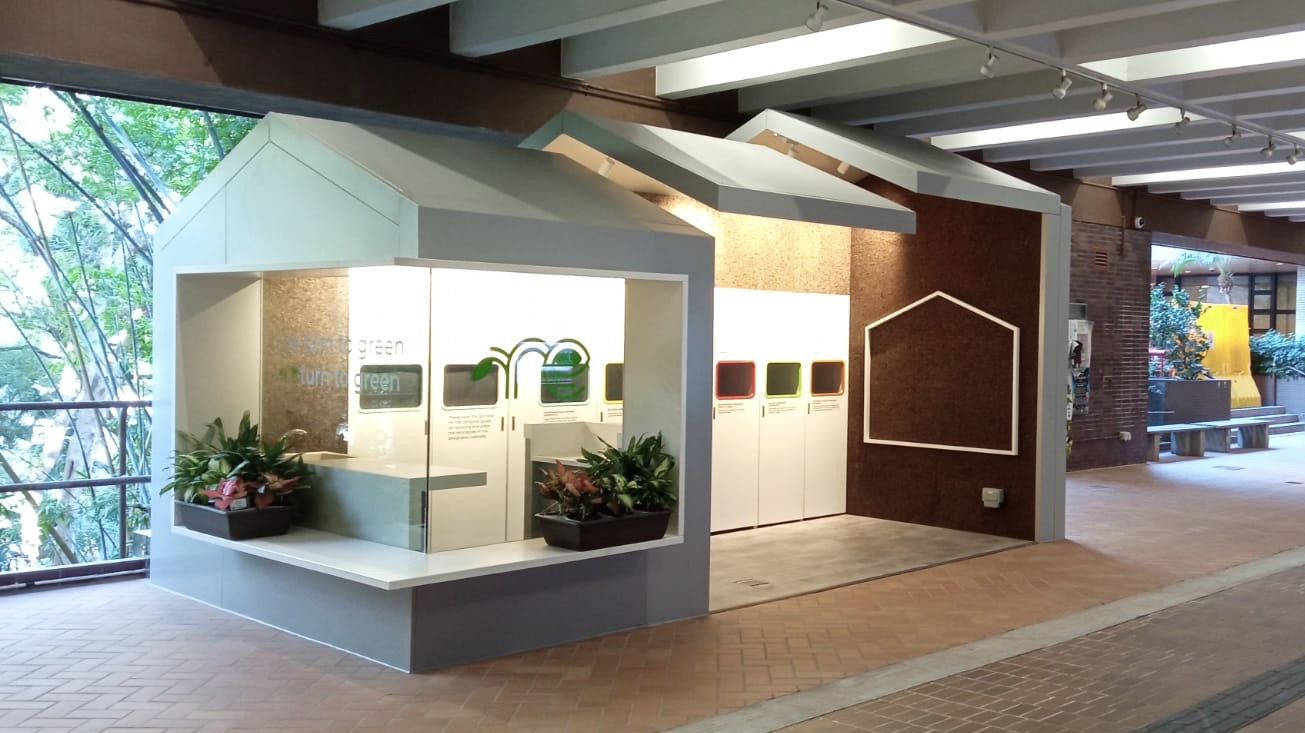Who We Are
HKSCC is a platform for the higher education institutions in Hong Kong to share information and best practices on sustainability related issues. Member institutions include the eight publicly-funded universities. Below are selected sustainability initiatives at each university:
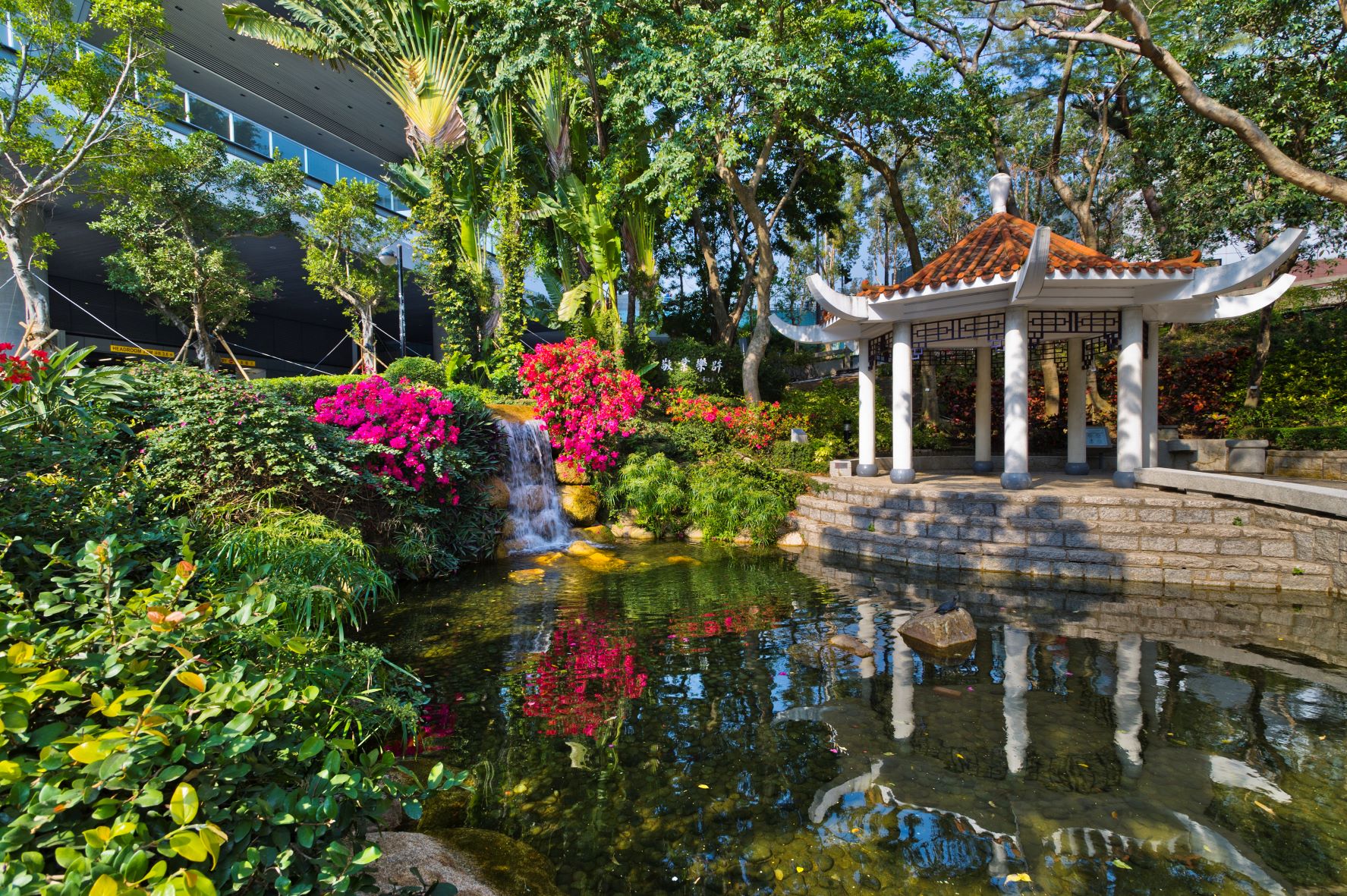
City University of Hong Kong
A Nurturing Place for Biodiversity in the Heart of the City
Despite being located in the congested Kowloon Tong area, CityU has about 80,000 m2 greening area with more than 3,000 number of trees and home of more than 10 types of birds. The campus indeed provides an important habitat in the concrete jungle.
Fog-to-electricity Generator with Ultra-high Power Density Research Project
The CityU research project won the Gold Medal with Congratulations of the Jury at Inventions Genera Evaluation Days (IGED) 2022. The Generator combines a newly developed high-power density droplet-based energy generator with a nature-inspired, superhydrophobic fog harvesting mesh. This new technology can produce a record-high power (300V), with a water collection rate of approximately 250 litre per square meter per day.

Hong Kong Baptist University
Smart Classroom
Energy saving is one of the elements in the Smart Classroom Project. To complement the classroom booking system, occupancy sensors are being installed to automatically control the on/off of lighting and air-conditioning system simultaneously in classrooms and lecture theatres.
MSW Reduction Programme
HKBU conducted waste audits for 4 buildings on Kowloon Tong Campus every day from August to December 2021. The data collected in the waste audit would be used for formulating waste reduction measures on the campus.

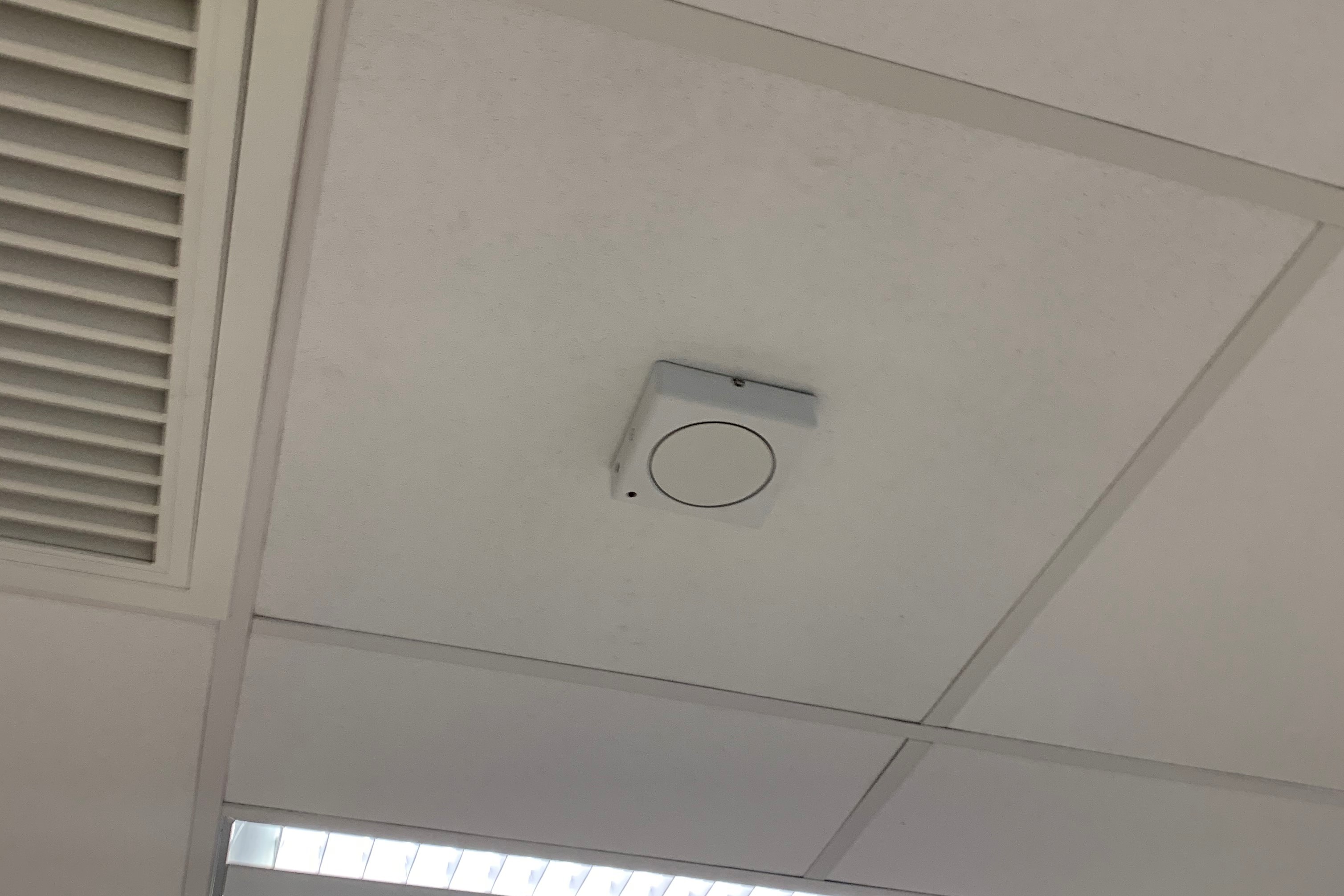
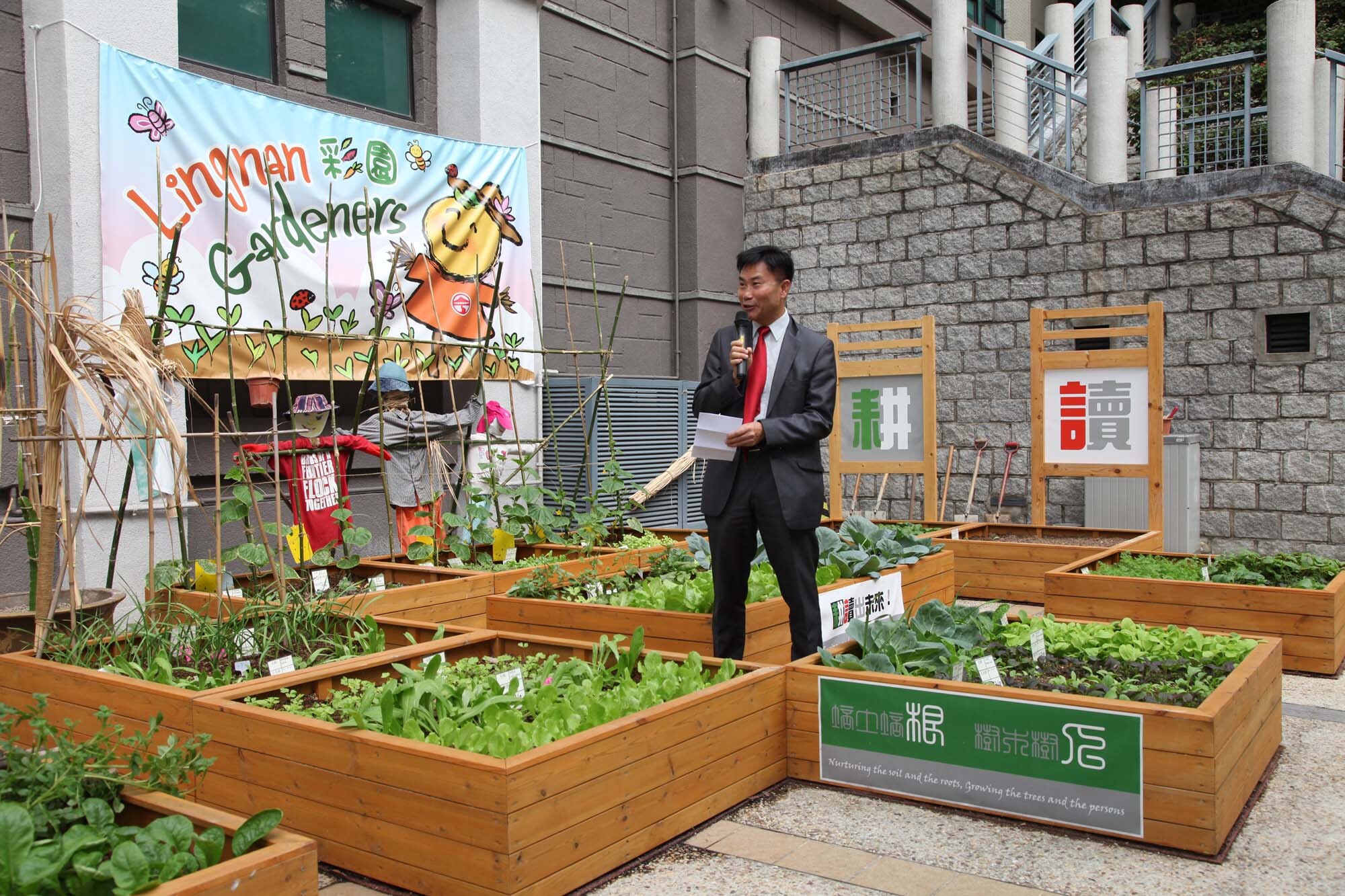
Lingnan University
Lingnan Gardeners – fun-filled learning experience through farming
Promoted by Prof. Lau Kin Chi of the Department of Cultural Studies, a practice-based project “Lingnan Gardeners” was initiated in 2014 to introduce farming as a part of new cultures of sustainability on campus. Staff, students, alumni and the community have been enjoying the fun of organic farming and getting to know more about herbal medicine, food processing, and health issues through courses, seminars and workshops.
LU entrepreneur’s innovative vending machine to reduce food waste
FlashGreen, founded by Lingnan alumnus provides a smart, sensible way to reduce unnecessary waste by challenging the concept of the best-before date, and encouraging responsible consumption. Features such as product reservation, automated price adjustment, and discount functions have been added to the traditional retail vending machine with IoT and real-time telemetry technologies. The vending machines will be installed in more districts to benefit the needy.

The Chinese University of Hong Kong
First to pledge to achieve carbon neutrality
CUHK was the first local university to pledge itself to achieve carbon neutrality by 2038. We have identified ‘Environment and Sustainability’ as one of the four focused research areas in our Strategic Plan 2021–2025.
Jockey Club Museum of Climate Change
In December 2013, we established the Jockey Club Museum of Climate Change, the first of its kind in the world, which has since hosted over 1.2 million visitors and been recognized as the premier source of climate knowledge and platform for climate action in the city.
Hong Kong chapter of the United Nations Sustainable Development Solutions Network
CUHK is also the proud co-host of the Hong Kong chapter of the United Nations Sustainable Development Solutions Network, which engages the community and mobilizes expertise and resources in the cause of sustainable development.

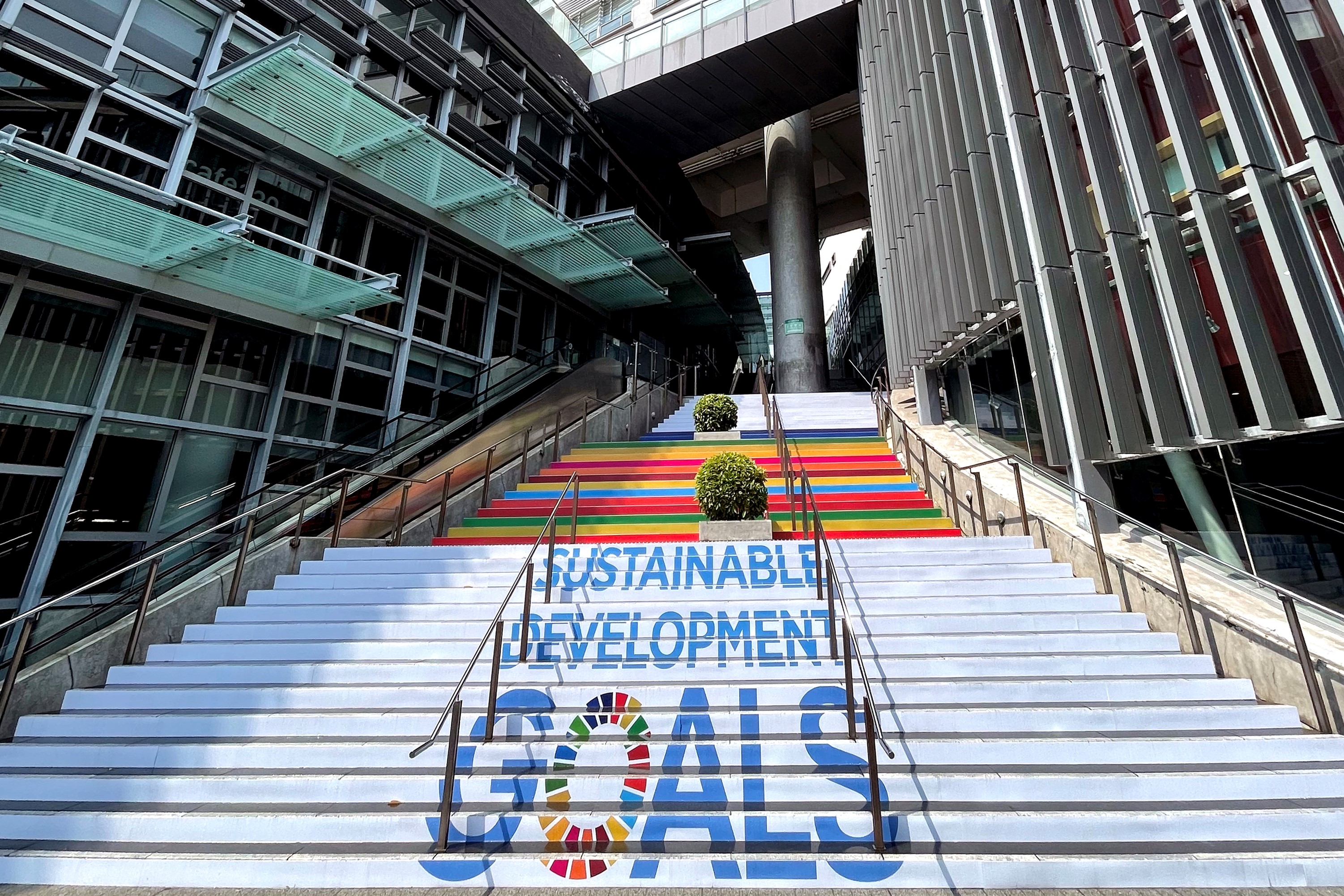
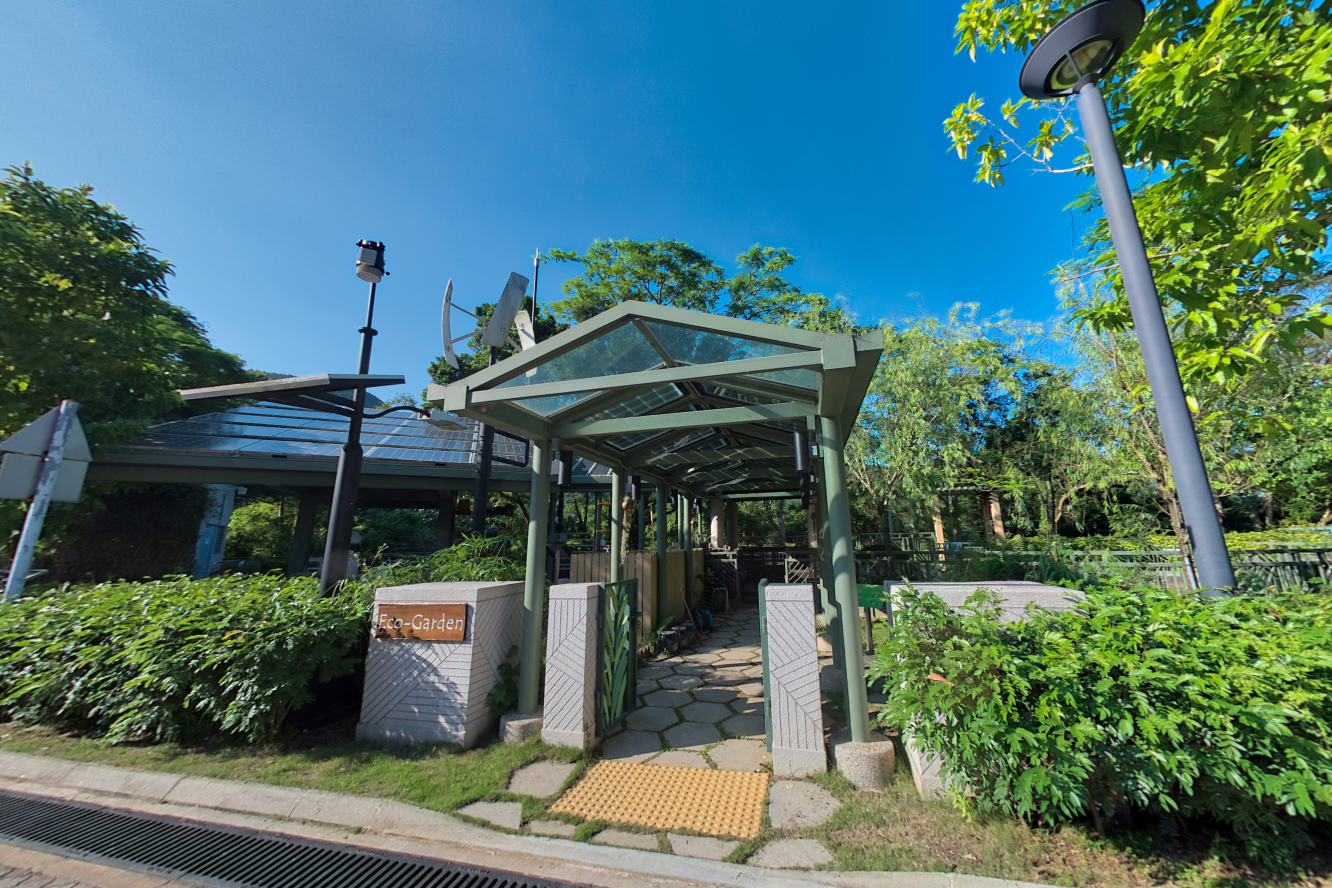
The Education University of Hong Kong
Eco-Garden
The Eco-Garden project is a collaboration between the Department of Science and Environmental Studies and the Estates Office to showcase the concept of ecosystems and sustainability on campus. The project comprises various eco-facilities to demonstrate the concepts of biodiversity conservation, material recycling and efficient energy consumption. The butterfly garden creates habitats attracting butterflies through specific plant selection and plantation. A large aquaponics system accommodates nutrient recycling from fish to crops. It was established with an adjacent eco-pond, which provides productive aquatic habitats to support biodiversity and environmental stability in the garden. On the organic farmland, crops are grown in an environmentally friendly and sustainable manner, with only organic farming methods practised to manage pests and maintain soil fertility. Electricity is generated through renewable energy by using photovoltaic panels and wind turbines. Surplus electricity is fed to a power company’s grid to supply electricity to other users.
As well as providing eco-tours to the general public, the Eco-Garden functions as an on-campus educational platform to carry out field-based and service-based learning activities, and to support staff research on topics concerning environmental education.

The Hong Kong Polytechnic University
Sustainability-related research on campus
PolyU has several sustainability-related research projects already applied on campus. For example, the University has performed energy performance assessment and optimisation of buildings by leveraging PolyU’s research competence on campus. With the establishment of various Research Institutes/Centres, more experts will be gathered across diverse disciplines to provide inter-disciplinary solutions for major sustainability challenges and apply smart and sustainability-related research projects on campus.
Task Force on Campus Carbon Neutrality
PolyU established a Task Force on Campus Carbon Neutrality with expert members from different Faculties and Schools to work out a roadmap to achieve carbon neutrality on campus, supporting Hong Kong’s efforts to achieve carbon neutrality by 2050. Research Institutes/Centres focusing on carbon neutrality will help the University reduce carbon emissions.

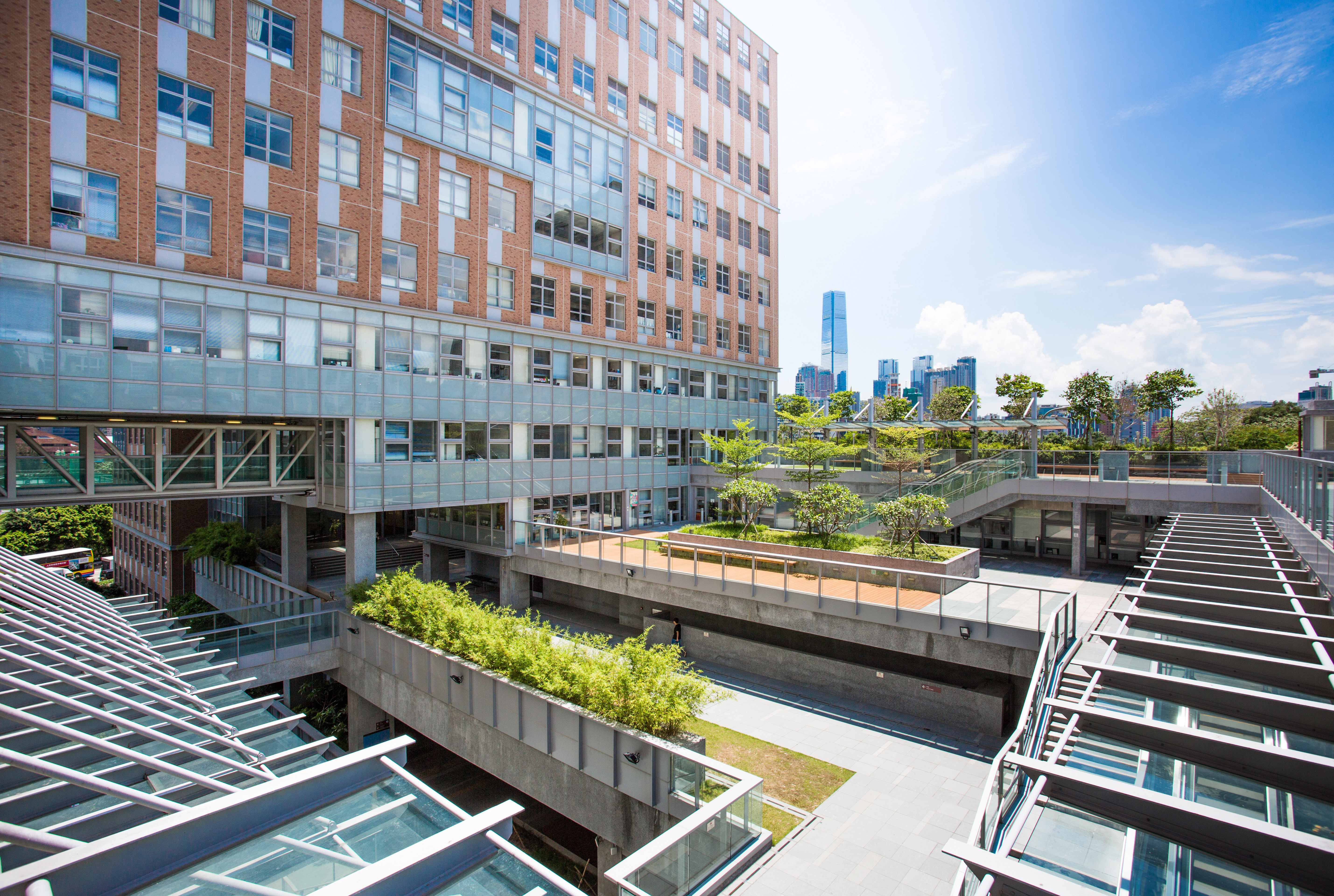
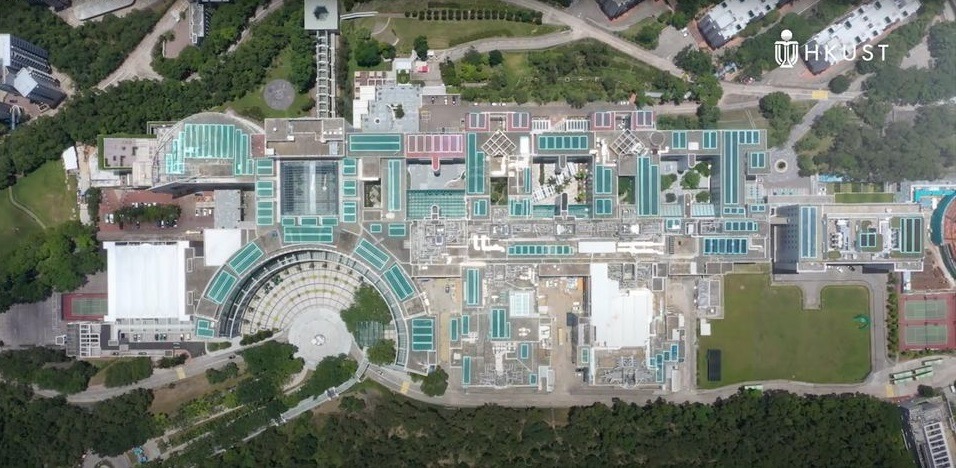
The Hong Kong University of Science and Technology
Solar energy generation project
HKUST will install up to 8,000 solar panels at over 50 campus locations. The system will generate up to 3 million units (kWh) of electricity each year - equivalent to the annual electricity consumption of more than 900 three-member households in Hong Kong.
Sustainable Smart Campus as Living Lab
HKUST launched the Sustainable Smart Campus as Living Lab to empower university members to devise and demonstrate innovations on campus as a testing ground for wider application in the future.

The University of Hong Kong
RE Campaign
On top of the Disposable Plastic Free Campus Policy adopted in 2020, HKU aims to reduce solid waste by launching re Campaign to increase the on-campus recycling rate through innovative sustainability initiatives. The pioneering program of the re Campaign- re Kiosk, an on-campus recycling facility, has created a new atmosphere of recycling on campus.

